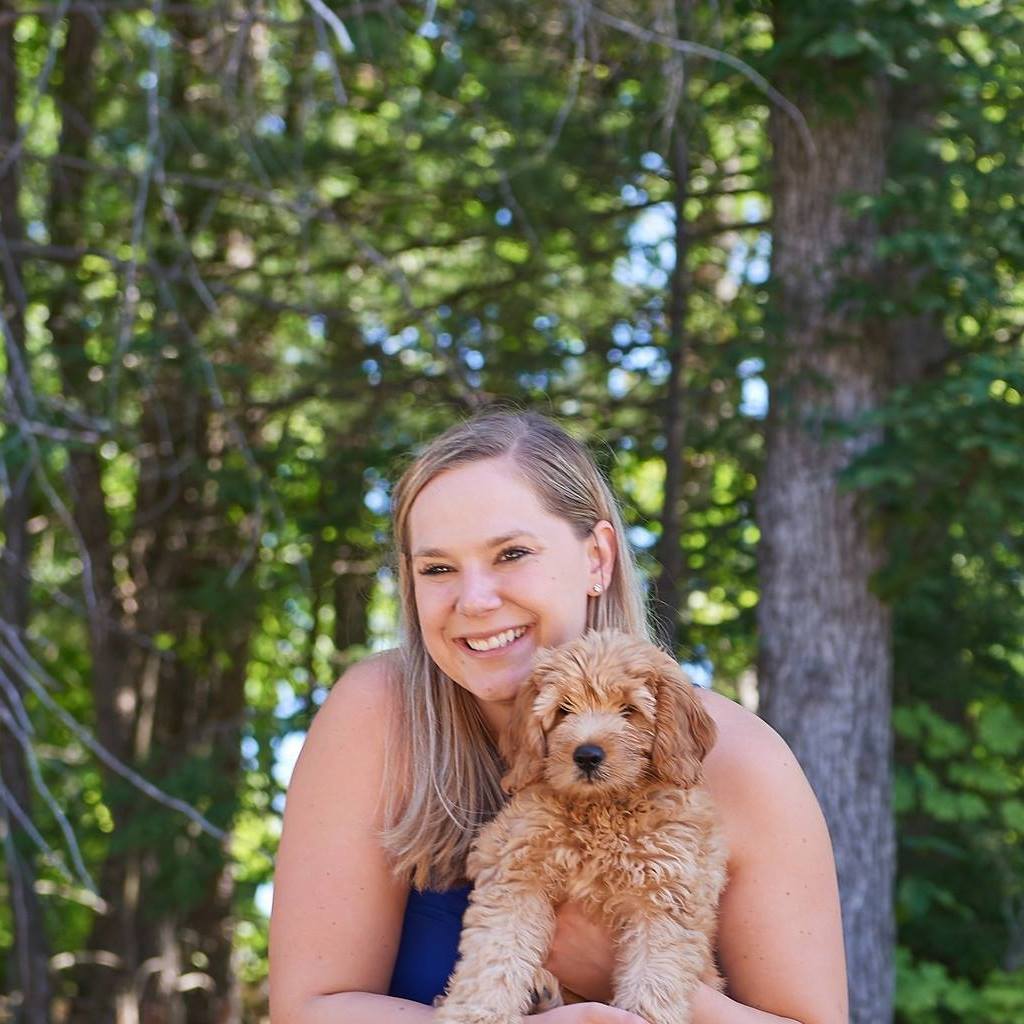By Amy Edelen
The Spokesman-Review, Spokane, Wash.
WWR Article Summary (tl;dr) Lisa Shaffer is the founder and CEO of “Paw Print Genetics.” The company provides diagnostic health testing for dogs, cats, and birds. Shaffer says right now a lot of her clients are breeders testing their dogs to make sure they’re producing genetically healthy puppies.
Spokane
As founder and CEO of Genetic Veterinary Sciences Inc., Lisa Shaffer is advancing the health of canines, felines and birds through genetic DNA testing.
Shaffer, a board certified geneticist, has more than 20 years of experience working in the field of human genetics and developing technologies to improve diagnostic testing. She is the former co-founder, CEO and president of Signature Genomic Laboratories, which conducted genetic testing for children with developmental disabilities.
Shaffer co-founded Genetic Veterinary Sciences, which does business as Paw Print Genetics, in 2012 with her husband, Jeff. The company provides diagnostic health testing for dogs, cats and birds through four brands: Paw Print Genetics, Canine HealthCheck, CatScan and AvianDx.
Genetic Veterinary Sciences has experienced significant growth since its launch, serving breeders, veterinarians and pet owners worldwide. Paw Print Genetics now offers more than 200 tests for more than 350 dog breeds.
This year, the company was named to Inc. magazine’s list of the 5,000 fastest-growing privately held companies in the U.S.
“We are growing. During the pandemic, a lot of people are working from home, and I guess people think it’s a good time to have a dog,” Shaffer said. “The people who work with us are mostly breeders testing their dogs to make sure they’re producing genetically healthy puppies and the breeders continue to produce litters. So, we’ve been busy.”
A career in genetics
Shaffer grew up in Kennewick and graduated from Washington State University with a bachelor’s degree in biology. She obtained a doctoral degree in human genetics at the Medical College of Virginia in 1990.
Shaffer’s interest in genetics was sparked in a high school biology class where she learned about children with Down syndrome, a genetic disorder caused when abnormal cell division results in an extra chromosome 21.
“I just found that very fascinating. Because, you know, we’re taught that more is better. But when it comes to your genetics, you need a perfect balance of half your genes from your mom and half your genes from your dad, and if you have missing or extra pieces of your genome, it can cause medical problems,” Shaffer said. “I found that very fascinating, and right then and there, I decided that’s what I was going to do. I was going to work on Down syndrome.”
In 1991, Shaffer became a professor at the Baylor College of Medicine’s Department of Molecular and Human Genetics in Houston, a position she held for nearly 12 years before moving to Spokane in 2002.
After moving to Spokane, Shaffer launched Signature Genomic Laboratories with seed funding from Sacred Heart Medical Center.
The company, which conducted diagnostic testing for chromosomal abnormalities that result in developmental disabilities, grew to 120 employees before being acquired by PerkinElmer Inc. in 2010 for $90 million.
Shaffer was also a professor at Washington State University’s School of Molecular Biosciences from 2002-2008.
Paw Print Genetics
After Signature Genomic Laboratories was acquired, Shaffer wanted to continue working in genetics. When she was at Baylor College of Medicine and Signature Genomic Laboratories, she worked on a few cases for zoos in which she examined primate chromosomes.
“We found some pretty interesting things in primate chromosomes, and I’ve always been interested in animals and helping animals, but I wanted to do something where we can make a big impact,” Shaffer said. “We thought we would provide genetic services for companion animals, starting with dogs and, so, we started with Paw Print Genetics.”
Paw Print Genetics launched its first set of genetic dog tests in 2013 and quickly grew to become a dominant company among other genetic testing laboratories nationwide, in part, because of its customer service and large variety of tests, Shaffer said.
“Our goal is to just be the genetics resource for dogs and cats,” she said. “We wanted to just offer everything possible for dogs and cats in one place.”
Making an impact through research Giving back through clinical research and medicine is important for Shaffer, who has authored more than 300 medical publications and four books relating to genetics.
“When I kind of left human genetics, I was a little concerned that I wasn’t going to make an impact, because it’s really important to me to give back and to make an impact in whatever field I’m working,” she said. “I really felt that my research that I did at Baylor and starting Signature Genomics really had an impact in clinical medicine and clinical genetics. That was my biggest concern with Paw Print Genetics is if I start something new, I want to make sure we’re still making an impact.”
The company’s impact is evident through its loyal customers, some of whom have sent emails to Shaffer thanking her for completing testing and assisting with interpreting the results.
“It’s important to them that they have genetic testing they can trust and they are able to call and talk to me, one of our other geneticists or one of our veterinarians,” Shaffer said. “It’s made a huge difference. We feel like they’re not just our customers, they are our partners. We partner with breeders to help them produce healthier puppies.”
Know your market and customers
Shaffer, who is a board member of Gonzaga University’s New Venture Labs, advises entrepreneurs to know their market and customers.
“I think the most important thing once you start a company is you treat your customers the way that you would want to be treated, and that can’t be understated. I treat all of our customers with respect,” Shaffer said. “I’m so appreciative they use us because I know they have a choice for genetic testing and I want to make sure their questions get answered and that we’re supporting them. I want to make sure that we’re producing the highest accuracy possible, so they can trust the results.”
A knack for patterns
In her spare time, Shaffer enjoys spending time with family and quilting — a hobby that she, in part, attributes to being a cytogeneticist, one who studies the structure of DNA within the cell nucleus.
“I used to look at the black and white banded chromosomes through a microscope and identify little tiny gains or losses,” she said. “I have a knack for pattern recognition, and I think it’s probably why I enjoy quilting so much.”
Continuing to grow
Paw Print Genetics is in the process of purchasing land to build a larger office and laboratory. The company will continue leasing the second floor of the Franklin Park Medical Center at 220 E. Rowan Ave. until 2022, Shaffer said.
The company also is developing new genetic tests, including six that will be launched this month.
“We hope by the end of the year, that we’ll be launching about 15 new tests,” Shaffer said. “Next year, our big push is going to be launching more breeder tools — things that breeders can use to either track genetic results or answer some of their genetic questions … that’s something we are going to work on next.”
___
Distributed by Tribune Content Agency, LLC.
















































































































































































































































































































































































